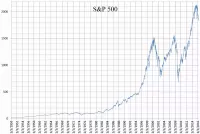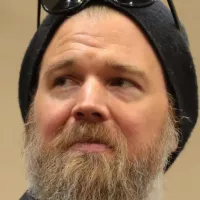Best Buy is a multinational consumer electronics retailer founded in 1966 as Sound of Music by Richard M. Schulze and James Wheeler. Rebranded in 1983, the company shifted its focus to consumer electronics. Headquartered in Richfield, Minnesota, Best Buy has become a major player in the retail electronics market.
August 22, 1966: Sound of Music Opens
On August 22, 1966, Richard M. Schulze and a business partner opened Sound of Music, an electronics store specializing in high fidelity stereos, in St. Paul, Minnesota.
1966: Sound of Music Founded
On August 22, 1966, Richard M. Schulze and James Wheeler founded Sound of Music, an audio specialty store, in St. Paul, Minnesota.
1967: Sound of Music acquisitions
In 1967, Sound of Music acquired Kencraft Hi-Fi Company and Bergo Company.
1969: Schulze Buys Out Partner
In 1969, Richard Schulze bought out his business partner at Sound of Music.
1981: Tornado Sale
In 1981, after a tornado damaged the Roseville Sound of Music location, Schulze held a "Tornado Sale" of damaged and excess stock, which was highly successful.
1983: Rebranding to Best Buy
In 1983, Sound of Music rebranded as Best Buy Co., Inc., shifting its focus to consumer electronics.
1983: Rebranding to Best Buy and Expansion
In 1983, Sound of Music was renamed Best Buy Company, Inc. The company expanded its product offerings to include home appliances and VCRs. The first Best Buy superstore opened in Burnsville, Minnesota.
1985: Best Buy Goes Public
In 1985, Best Buy was taken public.
1988: Introduction of "Concept II" Stores
In 1988, Best Buy introduced the "Concept II" store design, featuring brighter stores, stock on the sales floor, and a commission-free sales environment.
1988: Price war with Highland Superstores
In 1988, Best Buy was in a price and location war with Highland Superstores, and Schulze attempted to sell the company to Circuit City, but the offer was rejected.
1992: $1 Billion in Annual Revenues
In 1992, Best Buy achieved $1 billion in annual revenues. Its Midwest rival, Highland, would file for bankruptcy in the same year.
1993: Highland Closes All Locations
In 1993, Highland Superstores, a Midwest rival, closed all locations after filing for bankruptcy the previous year.
1994: Debut of "Concept III" Stores
In 1994, Best Buy launched "Concept III" stores in new markets, featuring expanded product offerings, "Answer Center" touchscreen kiosks, and demonstration areas.
1998: Launch of "Concept IV" Stores
In 1998, Best Buy launched its "Concept IV" stores in New England, featuring an open layout, category organization, and cash registers throughout the store.
December 2000: Acquisition of Magnolia Hi-Fi
In December 2000, Best Buy acquired Magnolia Hi-Fi, Inc., an audio-video retailer located in California, Washington, and Oregon.
2000: Lawsuit over Extended Warranties
In 2000, a lawsuit was brought against Best Buy alleging fraudulent business practices related to the sale of extended warranties. The company settled for $200,000 but admitted no wrongdoing.
January 2001: Acquisition of Musicland Stores Corporation
In January 2001, Best Buy acquired Musicland Stores Corporation, a retailer of home-entertainment products.
July 2002: Brad Anderson becomes CEO
In July 2002, Brad Anderson succeeded Richard Schulze as Best Buy CEO.
2003: Store milestone and campus consolidation
In 2003, Best Buy stores in the U.S. surpassed the 600-store mark and the company opened its first global-sourcing office in Shanghai. In June, Best Buy divested itself of Musicland in a deal with Sun Capital Partners. Also in 2003, Best Buy's corporate offices were consolidated into a single campus in Richfield, Minnesota.
January 2004: Virtucom Group Hired to Revamp Website
In January 2004, Best Buy hired Virtucom Group to revamp Best Buy's website and handle all of the company's online content.
April 2005: Elimination of Mail-In Rebates
In April 2005, Best Buy began eliminating mail-in rebates, replacing them with instant rebates via notebook computers.
2005: Best Buy adopted results only work environment
From 2005 until March 2013, corporate employees operated under a results only work environment.
May 2006: Acquisition of Jiangsu Five Star Appliance
In May 2006, Best Buy acquired a majority interest in Chinese appliance retailer Jiangsu Five Star Appliance for $180 million.
January 2007: First Best Buy Store Opens in China
In January 2007, the first Best Buy-branded store in China officially opened in Shanghai.
March 2007: Acquisition of Speakeasy
In March 2007, Best Buy acquired Speakeasy, a broadband VOIP, data, and IT services provider, for $80 million.
October 2007: Exit from Analog Television Market
In October 2007, Best Buy became the first consumer-electronics retailer to exit the analog television market, carrying only digital products.
December 2007: In-store website investigation
In December 2007, the Los Angeles Times reported on customers who thought they were surfing the Internet version of bestbuy.com at an in-store kiosk only to learn that the site reflected in-store prices only.
2007: Greenpeace Report on Deforestation
In 2007, Best Buy was named in a Greenpeace report for purchasing raw materials from logging companies contributing to unethical deforestation of taiga in Canada.
February 2008: First Store in Puerto Rico
In February 2008, Best Buy opened its first store in San Juan, Puerto Rico.
April 26, 2008: FCC Fines Best Buy
On April 26, 2008, the U.S. Federal Communications Commission (FCC) fined Best Buy $280,000 for not alerting customers that the analog televisions it sold would not receive over-the-air stations after the digital transition on June 12, 2009.
May 2008: Best Buy challenged FCC ruling
In May 2008, Best Buy challenged FCC ruling saying it was and is in compliance with current FCC regulations pertaining to the digital transition.
July 2008: Musical Instruments Sales
In July 2008, Best Buy announced it would begin selling musical instruments and related gear in over 80 retail stores.
2008: Hubert Joly served as CEO of Carlson
Since 2008, Hubert Joly had served as CEO of Carlson, a hospitality conglomerate.
February 2009: Launch of Best Buy Mobile
In February 2009, Best Buy launched Best Buy Mobile, a Best Buy-branded mobile retailer, leveraging its partnership with The Carphone Warehouse.
June 12, 2009: Digital transition date
On June 12, 2009, analog televisions sold would not receive over-the-air stations after the digital transition.
June 2009: Brian J. Dunn Becomes CEO
In June 2009, Brian J. Dunn became Best Buy CEO, replacing Brad Anderson.
June 2009: Mandatory Digital TV Conversion in the US
In June 2009, digital television became mandatory in the US per FCC regulation.
November 2009: Launch of On-Demand Streaming Service
In November 2009, Best Buy partnered with Roxio's CinemaNow to launch an on-demand streaming service.
December 2009: First Store in Turkey
In December 2009, Best Buy opened its first store in İzmir, Turkey.
2009: Introduction of Recycling Program
In 2009, Best Buy introduced a recycling program, available at all its stores for a nominal fee, that collected nearly half-a-billion pounds of consumer electronics and e-waste.
2009: Best Buy acquired Jiangsu Five Star
In 2009, Jiangsu Five Star became a wholly owned subsidiary of Best Buy.
April 2010: First UK Store
In April 2010, Best Buy opened its first United Kingdom-based store in Thurrock.
April 2010: Class-action Lawsuit
In April 2010, a class-action lawsuit was filed against Best Buy by consumers who claimed Best Buy was making unsolicited phone calls in contravention of the Telephone Consumer Protection Act.
November 2011: Purchase of The Carphone Warehouse's Share of Best Buy Mobile
In November 2011, Best Buy purchased The Carphone Warehouse's share of Best Buy Mobile for $1.3 billion.
December 2011: Best Buy purchased mindSHIFT Technologies
In December 2011, Best Buy purchased mindSHIFT Technologies, an IT support company, for $167 million.
2011: Best Buy operated a marketplace
From 2011 to 2016, Best Buy operated an online marketplace for third-party sellers.
2011: Green Power Purchase
In 2011, Best Buy purchased nearly 119 million kilowatt-hours of green power, making it one of the largest green-power purchasers.
April 2012: Brian Dunn Resigns as CEO
In April 2012, Brian Dunn resigned as Best Buy's CEO amidst an internal investigation into allegations of personal misconduct. Following Dunn's resignation, Director George L. Mikan III was named interim CEO.
May 2012: Richard Schulze Resigns as Chairman
In May 2012, Best Buy released the internal investigation report alleging that Best Buy founder and chairman Richard Schulze knew of Dunn's inappropriate relationship and failed to notify the board. Consequently, Schulze resigned his chairmanship, and Best Buy Director Hatim Tyabji replaced Schulze as Best Buy chairman.
August 2012: Hubert Joly became CEO
Since August 2012, Hubert Joly held the position of CEO at Best Buy.
September 2012: Hubert Joly Replaced Mikan as Best Buy CEO
In September 2012, Hubert Joly replaced Mikan as Best Buy CEO. Joly implemented price matching, faster online delivery, and store-within-a-store sections for brands like Apple, Google, Microsoft, and Samsung, and improved employee product training.
2012: Best Buy Announces Transformation Strategy
In 2012, Best Buy announced a "transformation strategy" in response to declining revenue. Stores adopted a redesigned "Connected Store" format, including a centralized Geek Squad service desk and store-within-a-store concepts for Pacific Kitchen & Bath and Magnolia Design Center.
2012: Best Buy exits Europe
In 2012, Best Buy ceased its operations in Europe.
2012: Closure of UK Stores
In early 2012, Best Buy closed all 11 of its Best Buy stores in the United Kingdom.
March 2013: End of Results Only Work Environment
In March 2013, Best Buy CEO Hubert Joly abandoned the results-only work environment for corporate employees, which had been in place since 2005.
April 2013: Best Buy Exits European Market
In April 2013, Best Buy exited the European consumer electronics market by selling its 50% stake in The Carphone Warehouse back to the UK-based mobile phone retailer for around $775 million.
June 30, 2014: Decline in Sales
On June 30, 2014, Best Buy experienced a 4% dip in sales, marking the 10th consecutive quarter of declining sales. The company announced it would shift its marketing focus to digital media.
2014: Settlement in Telephone Consumer Protection Act Lawsuit
In 2014, Best Buy settled for $4.55 million in a class-action lawsuit filed against them in April 2010 by consumers who claimed Best Buy was making unsolicited phone calls in contravention of the Telephone Consumer Protection Act.
March 28, 2015: Shutdown of Future Shop Chain in Canada
On March 28, 2015, Best Buy announced the shutdown of the Future Shop chain in Canada. 65 of its 131 former locations were converted into Best Buy locations, while the remainder were closed permanently.
October 29, 2016: Store Operations
As of October 29, 2016, Best Buy operated 1,026 Best Buy, 331 Best Buy Mobile stand-alone stores, and 28 stand-alone Pacific Sales stores in the US; 135 Best Buy and 53 Best Buy Mobile stand-alone stores in Canada; and 18 Best Buy stores and 5 Best Buy Express stores in Mexico.
2016: Best Buy ended operation of marketplace
From 2011 to 2016, Best Buy operated an online marketplace for third-party sellers.
March 1, 2018: Best Buy to shut down Mobile stores
On March 1, 2018, Best Buy announced it would shut down its 250 standalone Best Buy Mobile stores in the United States by the end of May, citing low revenue and high costs. The Best Buy Mobile stores were reported to account for 1% of the company's revenue.
May 9, 2018: Best Buy Unveils New Logo
On May 9, 2018, Best Buy unveiled a new logo for the first time in nearly three decades.
July 2, 2018: Reduction of Store Space Devoted to Physical Music
On July 2, 2018, Best Buy announced it was reducing store space for selling physical music due to the popularity of streaming services reducing sales.
2018: Fortune 500 Ranking
In 2018, Best Buy was ranked number 72 on the Fortune 500 list of the largest United States corporations by total revenue.
April 15, 2019: Corie Barry to Replace Hubert Joly as CEO
On April 15, 2019, Best Buy announced that Corie Barry would replace Hubert Joly as CEO in June 2019. Joly became executive chairman of the company.
June 2019: Corie Barry Becomes New CEO
In June 2019, Corie Barry replaced Hubert Joly as the CEO of Best Buy.
December 2020: Best Buy exits Mexico
In December 2020, Best Buy ceased operations in Mexico due to the economic impact of the COVID-19 pandemic.
2021: Layoffs and Part-Time Positions
In early 2021, despite an increase in sales of computer equipment due to remote work during the COVID-19 pandemic, Best Buy laid off over 5,000 employees and forced many others into part-time positions.
August 2022: Layoffs After Warning of Weaker Sales
In August 2022, Best Buy announced it would be laying off employees across the country after warnings of weaker sales and cut its forecast for the remainder of 2022.
October 13, 2023: Phasing Out Home Video Sales
On October 13, 2023, Best Buy announced that it would phase out the sale of home video on physical media in early 2024 due to changes in the market from streaming video on demand services.
October 20, 2023: Marketplace investigation
On October 20, 2023, CBC News released the results of a Marketplace investigation which found that Best Buy technicians had viewed private files, such as intimate photos, on customer devices. One technician was also caught copying photos onto a USB flash drive.
January 18, 2024: BCE Inc. Agreement with Best Buy Canada
On January 18, 2024, BCE Inc. announced an agreement with Best Buy's Canadian division to rebrand selected locations of The Source as Best Buy Express. These stores will offer wireless services from Bell Canada and its subsidiaries.
March 2024: Restricting Employee Resource Group Donations
In March 2024, Best Buy agreed to block donations by employee resource groups to eight LGBT organizations over their support for access to gender-affirming care for trans minors, following threats of shareholder-related action. This decision received criticism.
June 2024: First Best Buy Express opens
In June 2024, the first Best Buy Express location opened in Surrey, British Columbia. The new stores are rebranded locations of The Source and will offer wireless services from Bell Canada and its subsidiaries.
2024: Phasing Out Home Video Sales
Best Buy announced that it would phase out the sale of home video on physical media in early 2024 due to changes in the market from streaming video on demand services.
January 2025: Plans to Relaunch Online Marketplace
In January 2025, Best Buy announced plans to relaunch its online marketplace for third-party sellers by Summer 2025 in partnership with Mirakl. Best Buy had previously operated a marketplace from 2011 to 2016.
Mentioned in this timeline
California is a U S state on the Pacific Coast...
Puerto Rico is a self-governing Caribbean archipelago and island that...
China officially the People's Republic of China is an East...

The S P is a stock market index that tracks...

Los Angeles is the most populous city in California and...

News encompasses information about current events disseminated through various media...
Trending

52 minutes ago Ryan Hurst's Kratos Revealed in Prime Video's 'God of War' Series: Cast Updates

53 minutes ago Cowboys to Franchise Tag George Pickens for $28 Million: A Bold Move

53 minutes ago Rublev dominates Rinderknech, secures Dubai 2026 SFs spot; stats rival Djokovic, Federer.
19 hours ago Dell Projects AI Server Boom to Spur $50 Billion in Sales by 2027

2 hours ago Official Pokémon LEGO Sets Launch Worldwide on Pokémon Day 2026!

2 hours ago Scream 7 Premiere Sees Protests After Melissa Barrera's Firing; Cast Reunites.
Popular

Jesse Jackson is an American civil rights activist politician and...

Barack Obama the th U S President - was the...

Susan Rice is an American diplomat and public official prominent...

XXXTentacion born Jahseh Dwayne Ricardo Onfroy was a controversial yet...

Michael Joseph Jackson the King of Pop was a highly...

Kashyap Pramod Patel is an American lawyer who became the...